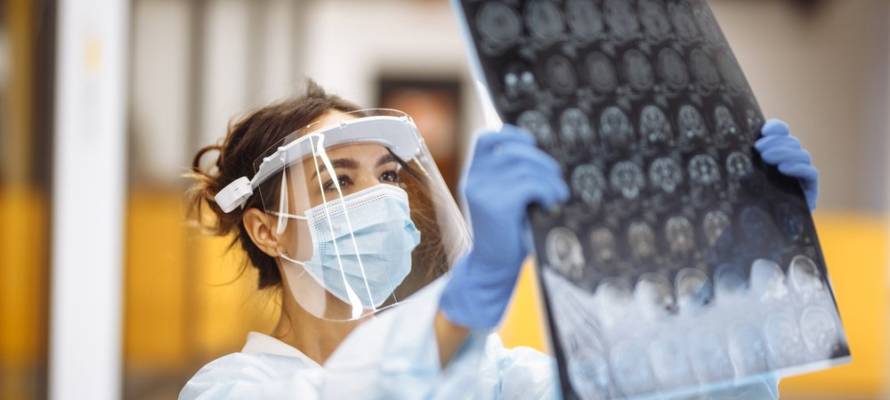Large-scale study finds strong connection between the coronavirus and strokes – particularly in younger patients
After several young coronavirus patients suffered strokes, concerned doctors around the globe formed an investigation team to research the causes and find out what the correlation is between COVID-19 and brain strokes, with a new report confirming the connection, the Hebrew University of Jerusalem announced Thursday.
Ever since the coronavirus became a widespread global pandemic, researchers have been investigating how the virus impacts other medical ailments, especially neurological ones. This became more urgent after five younger patients stricken with COVID-19 early last year experienced strokes after being diagnosed at New York’s Mount Sinai Hospital.
Researchers feared that the virus could lead to an increase of stroke risk even in patients with no history of vascular disease, like high blood pressure, diabetes or smoking.
Professor Ronen Leker at the Hebrew University of Jerusalem was part of the Multinational COVID-19 Stroke Study Group along with 89 researchers from 136 academic institutions around the world. The results of their comprehensive study that was just published showed a definite increase in stroke incidence among younger patients as compared to a similar age group prior to the onset of the coronavirus pandemic.
The study analyzed data from patients who tested positive for the coronavirus after they had been hospitalized for stroke and other serious brain events. The researchers analyzed whether there were differences in the MRIs of patient after contracting COVID-19 and after the onset of their stroke. The researchers also examined whether there were geographic factors that impacted the severity of the stroke.
Of the 136 different medical centers in 32 countries that participated in the study, at least 71 reported a patient who had a stroke during hospitalization for coronavirus or shortly thereafter. Of the 432 patients, 323 (74.8%) had acute ischemic stroke, 91 (21.1%) had intracranial hemorrhage, and 18 (4.2%) had cerebral venous or sinus thrombosis.
But most troubling was the high occurrence of ischemic strokes in younger patients with no known existence of the types of the “classical” risk factors that contribute to the onset of stroke.
Of the 380 patients known to have experienced strokes while infected with COVID-19, close to 38 percent (144 patients) had no recognizable symptoms from the virus, such as cough or fever. The diagnosis came only after they were admitted to the hospital for stroke.
“This study further strengthened our understanding of the connection between the coronavirus and strokes in younger patients as a result of blockages in larger blood vessels,” said Prof. Leker.
“Going forward, we recommend performing COVID testing on all younger patients with strokes, particularly those with no known pre-existing conditions. I am hopeful and confident that this study will be instrumental in providing a better understanding of the link between COVID-19 and stroke, and provide direct therapeutic benefits to patients.”










